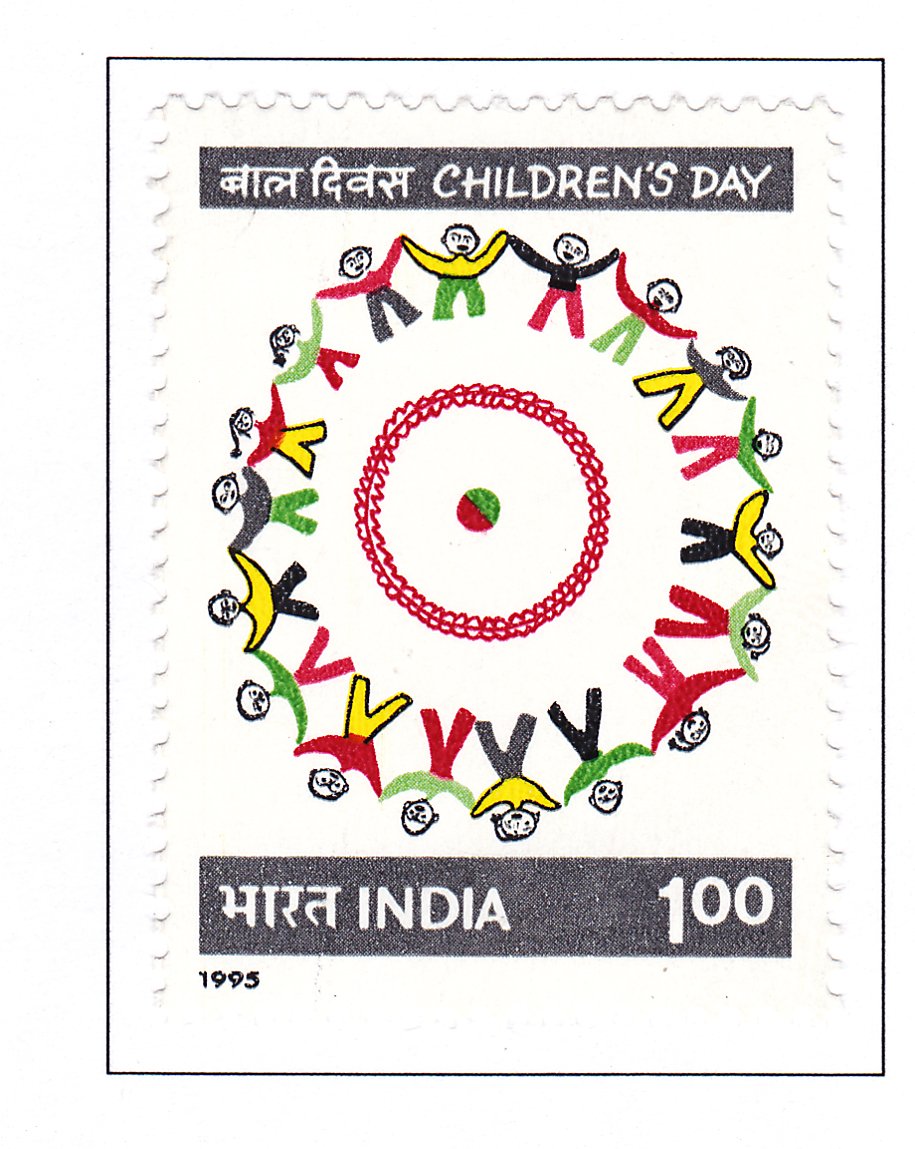Children’s Day 1995

Technical Data
| Stamp Set | Children's Day |
|---|---|
| Date of Issue | November 14, 1995 |
| Denomination | Rs. 1 |
| Quantity | 1,000,000 |
| Perforation | comb 13 x 13½ |
| Printer | Security Printing Press, Nashik |
| Watermark | No Watermark |
| Colors | Multicolor |
| Catalog Codes |
Michel IN 1480 Stamp Number IN 1542 Yvert et Tellier IN 1255 Stanley Gibbons IN 1643 |
| Themes | Children |
Table of Contents
Children’s Day 1995
India celebrates Children’s Day on November 14 each year to honor the birth anniversary of Pandit Jawaharlal Nehru, the first Prime Minister of India. This day is dedicated to acknowledging the importance of children and their well-being. This year marks a significant milestone in the Integrated Child Development Services (ICDS) Scheme, which has been serving the needs of children, mothers, and adolescent girls for 20 years.
Overview of the ICDS Scheme
- Inception and Growth: Conceived in 1975, the ICDS Scheme began with 33 blocks and has since expanded to cover 3,907 projects. As of March 31, 1995, it has reached 1.78 crore children and 0.38 crore mothers.
- Purpose: The scheme aims to provide comprehensive health, nutrition, and education services, particularly in rural areas. It focuses on Scheduled Castes, Scheduled Tribes, and other backward communities.
- Anganwadis: These are centers established under the ICDS Scheme where local workers and helpers provide essential services. Anganwadi workers are usually residents of the village, ensuring they have close contact with individual households. They collaborate with voluntary organizations, social activists, academic institutions, and professionals to deliver these services.
Children’s Day Celebration and Commemoration
- Stamp and First Day Cover: To commemorate 20 years of the ICDS Scheme, a special postage stamp has been issued, featuring artwork by Master Pintu and a First Day Cover with a painting by Master Chu-Chu Bhutia, aged 6. These children are from anganwadis and were recognized for their creativity in a painting competition organized by the ICDS Scheme.
- Historical Context: The celebration of Children’s Day and the work of the ICDS Scheme reflect a broader historical effort to improve the conditions of childhood. From the distressing conditions of child labor highlighted by Charles Dickens to early educational reforms by Robert Raikes and the contributions of literature such as Aesop’s Fables and the Panchatantra, societies worldwide have strived to enrich childhood and protect it from deprivation.
The Importance of ICDS
The ICDS Scheme embodies a commitment to nurturing the physical, emotional, and educational development of children. It represents a collective effort to ensure that children have the opportunity to grow up in a supportive and healthy environment, countering the effects of deprivation and inequality.
By recognizing these efforts through commemorative stamps and celebrating Children’s Day, India reaffirms its dedication to the welfare and development of its youngest citizens.
